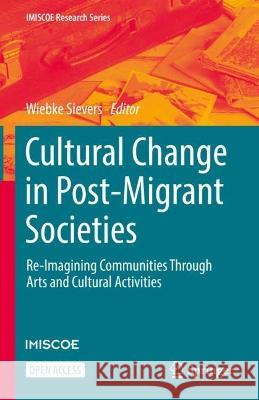Cultural Change in Post-Migrant Societies: Re-Imagining Communities Through Arts and Cultural Activities » książka
topmenu
Cultural Change in Post-Migrant Societies: Re-Imagining Communities Through Arts and Cultural Activities
ISBN-13: 9783031399022 / Angielski
Cultural Change in Post-Migrant Societies: Re-Imagining Communities Through Arts and Cultural Activities
ISBN-13: 9783031399022 / Angielski
cena 161,36
(netto: 153,68 VAT: 5%)
Najniższa cena z 30 dni: 154,18
(netto: 153,68 VAT: 5%)
Najniższa cena z 30 dni: 154,18
Termin realizacji zamówienia:
ok. 22 dni roboczych
Bez gwarancji dostawy przed świętami
ok. 22 dni roboczych
Bez gwarancji dostawy przed świętami
Darmowa dostawa!
Kategorie:
Kategorie BISAC:
Wydawca:
Springer
Seria wydawnicza:
Język:
Angielski
ISBN-13:
9783031399022











